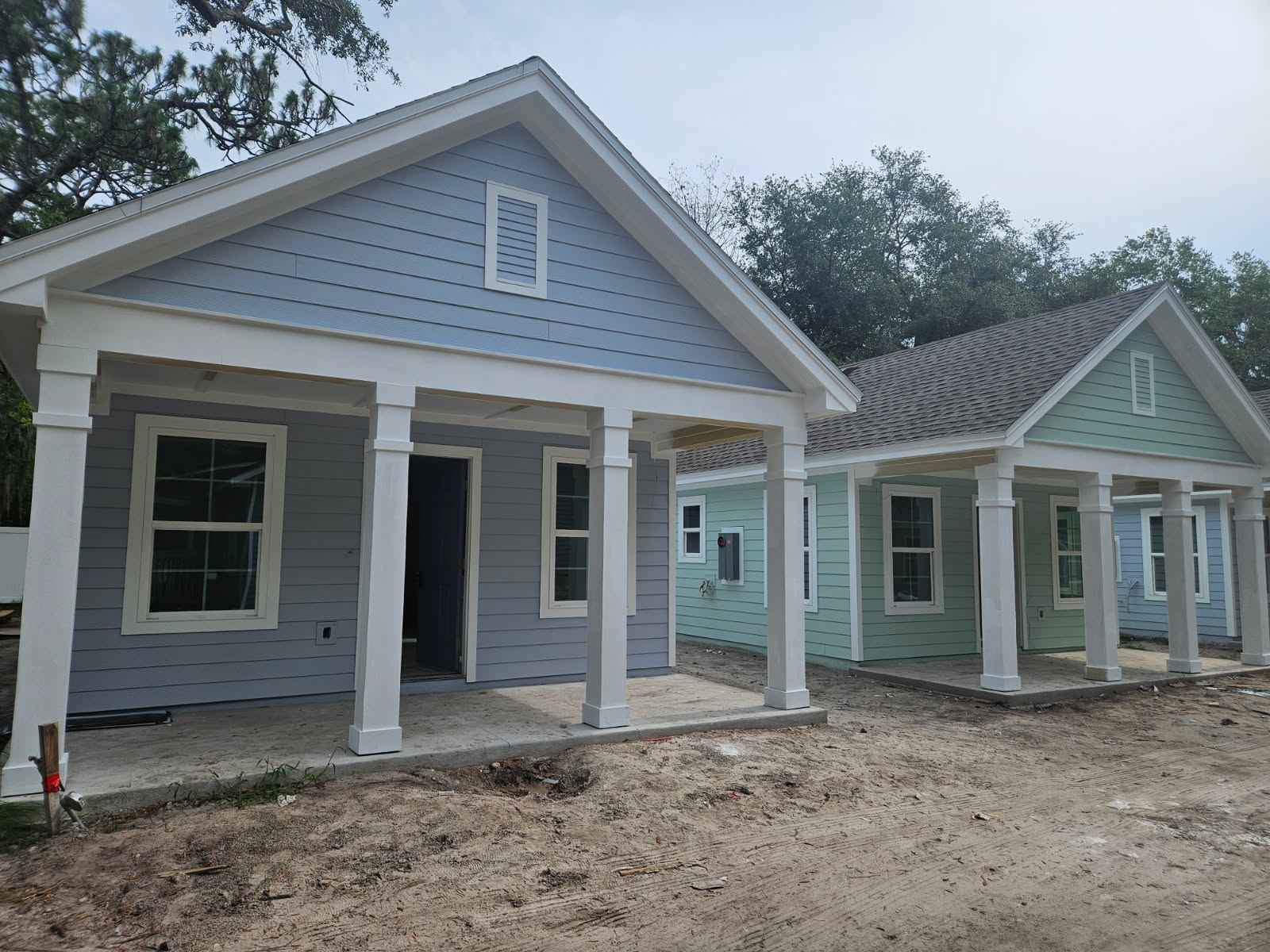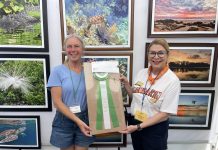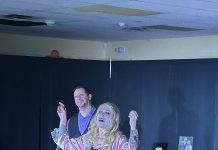Debbie Holmes brings hope to human trafficking survivors
By Tracy McCormick-Dishman
editor@floridanewsline.com
After decades in corporate America, Debbie Holmes knew her retirement would be different. The former CSX employee felt called to do “God’s work,” as she puts it, and found her mission through an unexpected connection at Orange Theory Fitness in Mandarin.
It was there she met Donna Fenchel, founder of Orange Theory’s Jacksonville locations, who shared her passion for helping women escape human trafficking. That meeting led Holmes to Villages of Hope, a nonprofit organization that’s about to open 13 small homes on Jacksonville’s west side to house survivors of human trafficking.
“When I retired, I had to do something that was about giving back and helping others,” Holmes said. “Donna’s passion was behind it 100%, and I told her when I retire, I would love to get involved.”
The statistics Holmes shares are sobering. Jacksonville ranks third in Florida and 48th nationally for human trafficking cases. Florida ranks third in the nation, with more than 10,000 cases reported nationwide in 2020. Most disturbing, the average age of trafficking victims is between 12 and 14.
“The traffickers actually prey on vulnerable people, friending them online and building an emotional bond which turns into emotional abuse,” Holmes explained. “They may use drugs and alcohol to increase the dependency.”
What makes Villages of Hope unique is its comprehensive approach. The organization offers a two-year program that begins with rest, allowing women to recover from trauma while connecting them with resources to overcome substance abuse. The second phase, called “restore,” includes individual and group counseling, equine therapy, medical and dental care, and life skills classes.
“We’re teaching basic stuff that most of us know how to do — how to cook, how to clean, personal hygiene, how to balance a checkbook, how to write a resume,” Holmes said.
The program partners with Re-threaded, a local organization that employs trafficking survivors, giving women work experience in a supportive environment before transitioning to jobs elsewhere.
Villages of Hope was patterned after Thistle Farms in Nashville, Tennessee, which has successfully operated a similar model. The Jacksonville village includes 13 homes of nearly 900 square feet each, with two bedrooms per home. One house will be for a live-in manager, two will serve as emergency housing, and the rest will house women who seek out the program.
Construction is nearly complete, thanks to partnerships with the Keeling Group, Northeast Florida Builders Association, and a matching grant from the Delores Barr Weaver Foundation. The foundation provided $500,000 after Villages of Hope raised $600,000.
“The houses are only a couple of weeks out from being completed,” Holmes said. “They’re beautiful. They look fabulous.”
Now serving as secretary, volunteer coordinator, and newsletter helper, Holmes is preparing for the village to welcome its first residents in late September or early October. The organization needs donations for furniture, appliances, and apartment-size washers and dryers.
Villages of Hope also conducts “tea parties” at churches and community organizations to raise awareness and recurring donors. The presentation uses mismatched teacups and teapots to symbolize how tea has historically been linked to slavery and exploitation.
Through their “Tea for Two” program, a monthly donation of $28 covers one night of care for one woman, while $56 covers care for two women.
Since starting in 2019, Villages of Hope has helped three women complete the full program, with two more graduating in November. All are working and rebuilding their lives.
“It’s in our backyard,” Holmes said. “If you want to help these women, here’s how you can help them.”
To learn more about Villages of Hope or to volunteer, visit VillagesOfHope.org, call (904) 253-3123, or contact Debbie Holmes about furnishing the new homes.








